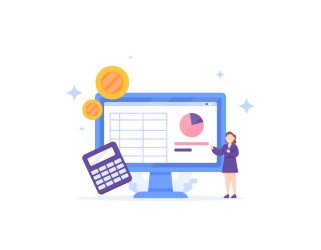
From April 2026, the Government’s Making Tax Digital (MTD) initiative will move to target self-employed individuals and landlords.
If you earn over £50,000 a year, you must adopt MTD-compliant software to maintain digital records and provide Income Tax updates. This will extend to those earning over £30,000 from April 2027.
These requirements pose significant challenges for people familiar with conventional record-keeping and tax reporting methods.
As MTD for Income Tax Self-Assessment (ITSA) approaches, there are several pitfalls you should be aware of to ensure a smooth transition.
Delaying the transition
While delaying your transition to MTD for ITSA may be tempting, it can be detrimental.
The process is longer than you think, requiring you to select compliant software, migrate your existing records, and learn new workflows.
Starting your transition early allows time for you to adjust.
Keeping records complete
One of the fundamental requirements of MTD is to keep complete digital records of all financial transactions.
If you fail to keep your records up to date, your records will be inaccurate. This could lead to inaccurate tax calculations and potential penalties, so ensure that your records are thorough and correct.
Choosing the right software
Having the right software can make or break your transition to MTD for ITSA. You must ensure that your chosen software package is fully compliant, otherwise you may find yourself falling short of the requirements.
Make sure you choose software approved by HM Revenue & Customs (HMRC) with the right features for you and your business.
Misconfiguring accounting periods
Make sure that your accounting periods are set correctly in your software. Incorrect settings can cause reporting errors and affect your tax obligations.
Combining personal and business finances
You may not be MTD compliant if you use one account for both your personal and business transactions. Establishing a dedicated business account is important to simplify your record-keeping and effectively segregate expenses.
Ignoring quarterly updates
Another aspect of MTD for ITSA is that you need to submit quarterly updates to HMRC. These should summarise your income and expenses. Failing to do so could result in you receiving penalties.
Compromising on data security
Keeping your financial data secure is vital. You must ensure that your chosen accounting software complies with current security standards and General Data Protection Regulation (GDPR) requirements to safeguard your information.
Overlooking professional support
Many individuals may consider managing the transition themselves, particularly if they already handle their own accounts. However, having the support of an accountant can help with any complexities you encounter.
Consider talking to accountants or bookkeepers who have a deeper understanding of MTD. This can help you to get the most out of MTD and prevent any errors in your transition.
If you would like specialised assistance with MTD for ITSA, please contact our team today.

